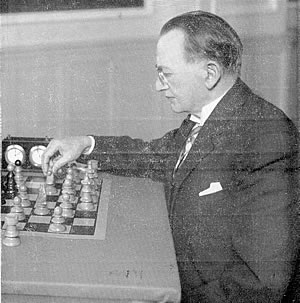Monday, March 13, 2006
Morphy:
"A popularly held
theory about Paul Morphy is that if he returned to the chess world today and
played our best comtemporary players, he would come out the loser. Nothing is
further from the truth. In a set match, Morphy would beat anybody alive
today." "Perhaps the most
accurate player who ever lived, he would beat anybody today in a set-match. He
had complete sight of the board and seldom blundered even though he moved
quite rapidly. I've played over hundreds of his games and am continually
surprised and entertained by his ingenuity" "Paul Morphy was a
great chessplayer, a genius... Morphy, I think everyone agrees, was probably
the greatest genius of them all..."
Steinitz:
"He is the so-called
father of the modern school of chess; before him, the King was considered a
weak piece and players set out to attack the King directly. Steinitz claimed
that the King was well able to take care of itself, and ought not to be
attacked until one had some other positional advantage. He understood more
about the use of squares than Morphy and contributed a great deal more to
chess theory."
Capablanca: "Capablanca was
possibly the greatest player in the entire history of chess."
Staunton:
"Staunton was the
most profound opening analyst of all time. He was more theorist than player,
but nonetheless he was the strongest player of his day. Playing over his
games, I discover that they are completely modern; where Morphy and Steinitz
rejected the fianchetto, Staunton embraced it. In addition, he understood all
of the positional concepts which modern players hold so dear, and thus - with
Steinitz - must be considered the first modern player."
Alekhine: "Alekhine is a
player I've never really understood; yet, strangely, if you've seen one
Alekhine game you've seen them all. He always wanted a superior center; he
maneuvered his pieces towards the King's-side, and around the twenty-fifth
move began to mate his opponent"
7. Jose Capablanca
 "He had the totally undeserved reputation of being the greatest living endgame
player. His trick was to keep his openings simple and then play with such
brilliance that it was decided in the middle game before reaching the ending --
even though his opponent didn't always know it. His almost complete lack of book
knowledge forced him to push harder to squeeze the utmost out of every position."
"He had the totally undeserved reputation of being the greatest living endgame
player. His trick was to keep his openings simple and then play with such
brilliance that it was decided in the middle game before reaching the ending --
even though his opponent didn't always know it. His almost complete lack of book
knowledge forced him to push harder to squeeze the utmost out of every position."
Sunday, March 12, 2006
What else Fischer had to say about:
Bobby Fischer, Yugoslavia press
conference, 1992









